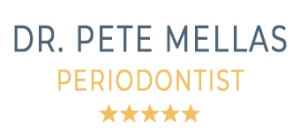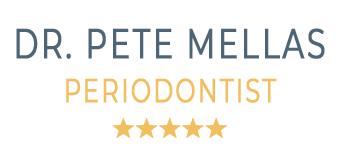Post-Op Instructions
After Placement of Dental Implants
Do not disturb the wound. Avoid rinsing, spitting, or touching the wound on the day of surgery. There will be a metal healing abutment protruding through the gingival (gum) tissue in some instances.
Bleeding
Some bleeding or redness in the saliva is normal for 24 hours. Excessive bleeding (your mouth fills up rapidly with blood) can be controlled by biting on a gauze pad placed directly on the bleeding wound for 30 minutes (repeat this three times). If bleeding continues please call for further instructions.
Swelling
Swelling is a normal occurrence after surgery. To minimize swelling, apply an ice bag, or a plastic bag, or towel filled with ice on the cheek in the area of surgery. Apply the ice continuously for approximately 1 hour (repeat 4-5 times the first day), and continue this for the first 48 hours-remembering to keep the head elevated at about 40 degrees the entire time.
Diet
Drink plenty of fluids. Avoid hot liquids or very warm foods. You should try to progress to soft foods after being able to tolerate liquids. All meals for the first day should be in small portions to allow the stomach time to normalize after general anesthesia. Return to a normal diet as soon as possible unless otherwise directed.
Pain
You should begin taking pain medication as soon as you feel the local anesthetic wearing off. Mild to moderate pain can often be controlled by taking Aleve, Advil, or Tylenol shortly after leaving the office. Most procedures will require the use of a narcotic for post operative pain control. Vicodin, Lortab, or Percocet are frequently used. If one of these narcotics have been prescribed, it is wise to start taking these within an hour of leaving the office. Each of these narcotics can be taken in addition to Aleve and Advil (which may be used to supplement the narcotics). Additional use of Tylenol with Vicodin, Lortab, or Percocet is not recommended due to the presence of Tylenol in each of these formulations. For severe pain, the prescribed medication should be taken as directed by Dr. Mellas. Do not take any of the above medication if you are allergic, or have been instructed by your doctor not to take it.
Antibiotics
Be sure to take the prescribed antibiotics as directed to help prevent infection.
Oral Hygiene
Good oral hygiene is essential to good healing. Peridex Oral Rinse may be prescribed for you following the procedure, depending on the situation. Peridex should be used twice daily, after breakfast and before bed. Be sure to rinse for at least 60 seconds then spit it out. Warm salt water rinses (teaspoon of salt in a cup of warm water) should be used at least 4-5 times a day, as well, especially after meals. Brushing your teeth and the healing abutments is no problem. Be gentle initially with brushing the surgical areas. If bone grafting has occurred, brushing the area for the first week will require great care. Cleansing the area with a Q tip is probably the best course of action until advised differently.
Activity
Keep physical activities to a minimum immediately following surgery. If you are considering exercise, throbbing or bleeding may occur. If this occurs, you should discontinue exercising and apply gauze to the area for 20-30 minutes. Keep in mind that you are probably not taking on normal nourishment or fluids. This may weaken you and further limit your ability to exercise, so be careful when first engaging in any form of exercise.
Wearing your Prosthesis
Partial dentures, flippers, or full dentures should not be used immediately after surgery and for at least 10 days. This was discussed in the pre-operative consultation. There may be exceptions to this rule; this should be taken up with Dr. Mellas at the pre-operative consult period.

